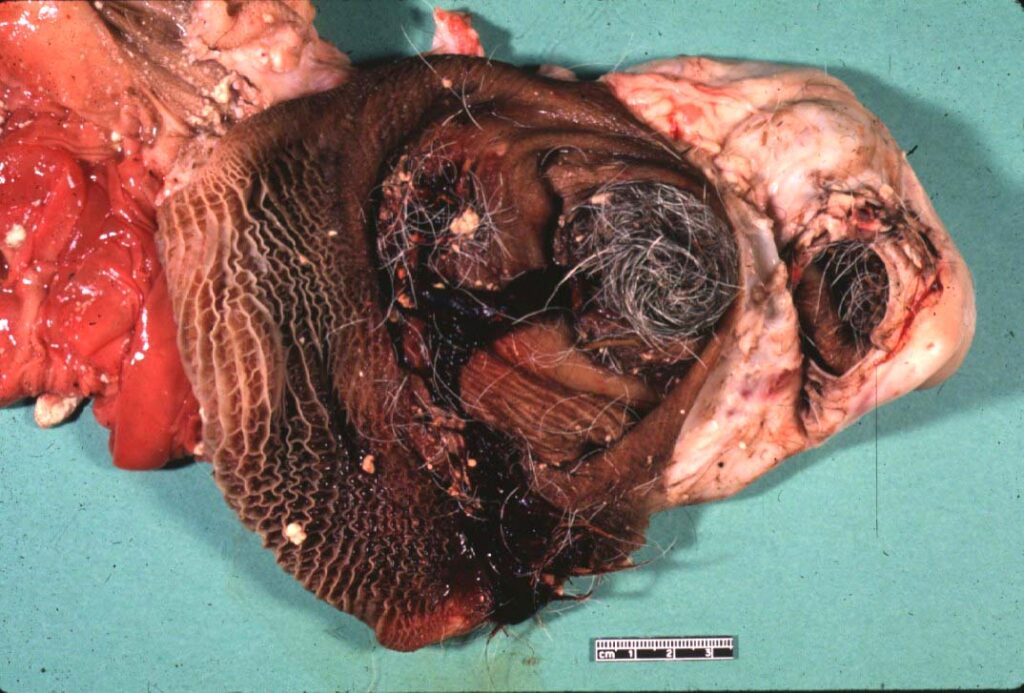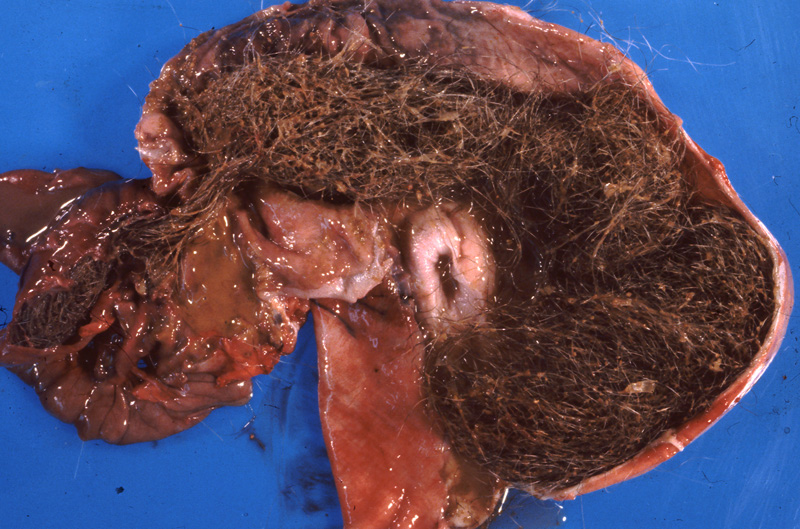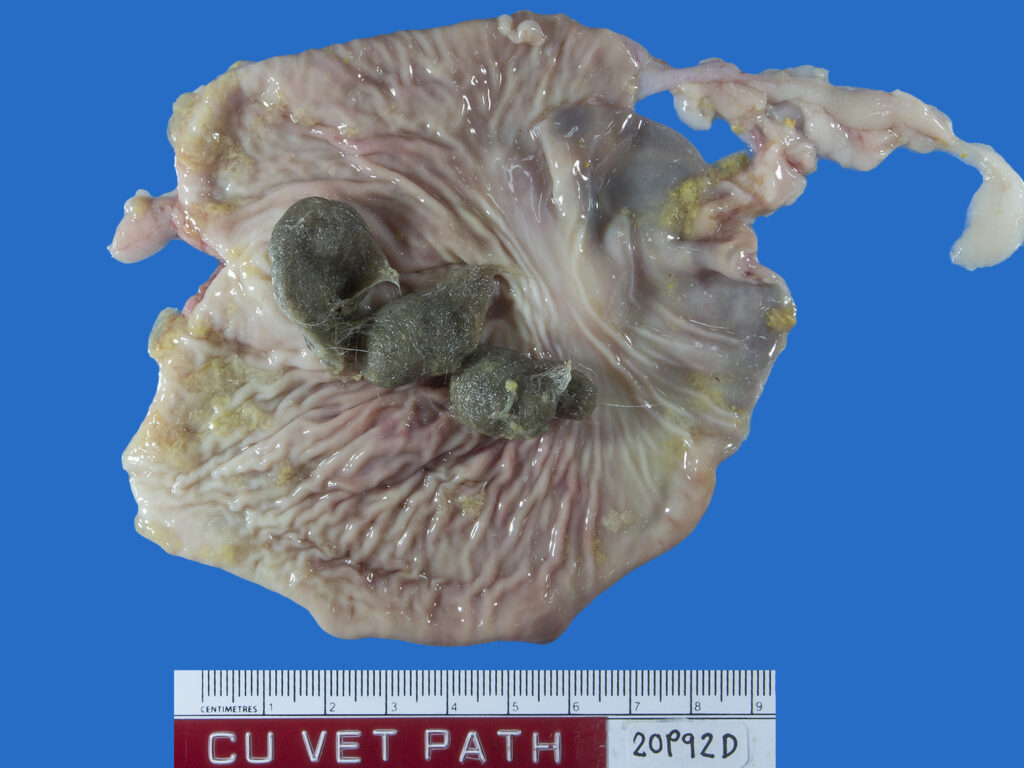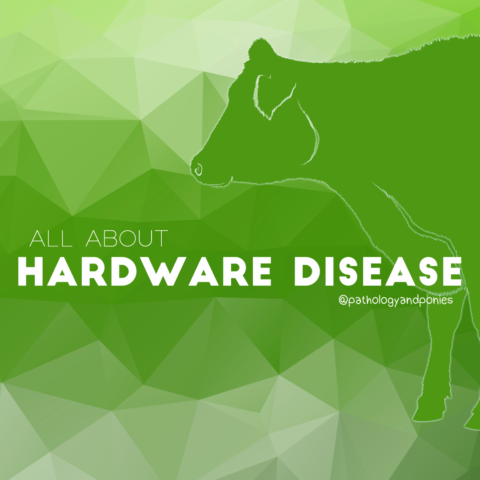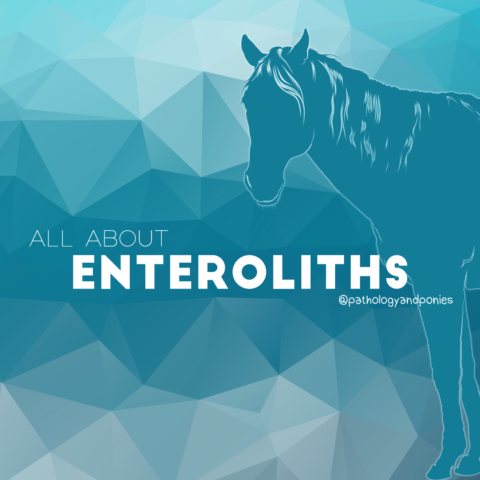Today’s path rounds are on 𝐡𝐚𝐢𝐫𝐛𝐚𝐥𝐥𝐬, more scientifically known as 𝐭𝐫𝐢𝐜𝐡𝐨𝐛𝐞𝐳𝐨𝐚𝐫𝐬!
𝐖𝐡𝐚𝐭 𝐢𝐬 𝐢𝐭?
𝐓𝐫𝐢𝐜𝐡𝐨𝐛𝐞𝐳𝐨𝐚𝐫𝐬 are a specific type of gastrointestinal foreign body, caused by animals ingesting large amounts of hair. This hair clumps together in the moist environment of the gastrointestinal tract, and forms what we think of as a hairball!
𝐖𝐡𝐨 𝐠𝐞𝐭𝐬 𝐢𝐭?
Pretty much any species can get this, but we most commonly think of it in long haired cats and calves.
𝐖𝐡𝐚𝐭 𝐜𝐚𝐮𝐬𝐞𝐬 𝐢𝐭?
The cause of trichobezoars in long-haired cats is probably obvious: they groom themselves! While grooming they often will ingest small amounts of hair, that eventually can lead to a hairball.
Calves, however, might seem a bit unusual. Calves typically start licking their hair or their friends’ hair when they are on a low 𝐫𝐨𝐮𝐠𝐡𝐚𝐠𝐞 diet. Roughage is things like hay, grass, etc, basically anything with a long stem. Without these long fibers in their rumen, they start to seek out other long fibrous things to eat, and often end up eating hair. Gross.
𝐖𝐡𝐲 𝐢𝐬 𝐭𝐡𝐢𝐬 𝐚 𝐩𝐫𝐨𝐛𝐥𝐞𝐦?
These hairballs act as a 𝐟𝐨𝐫𝐞𝐢𝐠𝐧 𝐛𝐨𝐝𝐲, which means they can actually block the normal flow of the intestinal tract. Depending on the species, this obstruction can lead to vomiting, inflammation of the stomach and intestinal tract or even 𝐮𝐥𝐜𝐞𝐫𝐚𝐭𝐢𝐨𝐧 (sloughing of the surface mucosa).
𝐇𝐨𝐰 𝐢𝐬 𝐢𝐭 𝐝𝐢𝐚𝐠𝐧𝐨𝐬𝐞𝐝?
If the hairball is causing an obstruction, it can often be seen on X-rays. These cases will display an 𝐨𝐛𝐬𝐭𝐫𝐮𝐜𝐭𝐢𝐯𝐞 𝐩𝐚𝐭𝐭𝐞𝐫𝐧, where some of the intestine appears enlarged and dilated, while the rest appears small and collapsed. The dilation occurs ahead of the obstruction, because intestinal contents are unable to flow past the hairball. Ultrasound may also be used to help identify these masses.
𝐇𝐨𝐰 𝐢𝐬 𝐢𝐭 𝐭𝐫𝐞𝐚𝐭𝐞𝐝?
Hairballs causing obstructions have to be removed surgically, and generally have a good prognosis!
𝐏𝐡𝐨𝐭𝐨𝐬
1-6) Various examples of trichobezoars in cats, calves, birds and baboons!
𝐒𝐨𝐮𝐫𝐜𝐞𝐬
Maxie, G. Jubb, Kennedy and Palmer’s Pathology of Domestic Animals, Volume 2. Sixth Edition.
Photos 1-6 © Noah’s Arkive contributor Kesdangsakonwut, Harrington, Dick, Rech, Luginbuhl licensed under CC BY-SA 4.0.

